
If you love animals and are creative and entrepreneurial, consider starting a pet business.
Running a pet and pet supply business may seem like an easy task for animal lovers, but there are many things we need to know about it before we can go down that road.
In this article, we will discuss the reasons for starting a pet business, the pros and cons of a pet business, and 7 helpful steps on how to start a pet business.
What Is a Pet Business?

A Pet business is a business model conducted to provide items needed by pets or certain services to pets. Pet businesses come in various forms.
Examples include pet sitting/dog walking, dog training, pet grooming, pet food sales, and premium pet products. Each of these businesses can be started as a home business with a fairly low financial investment.
All of these businesses can be launched and run successfully by the business owner without the assistance of any employees – at least if you want to grow and expand the business beyond your personal capabilities.
Like some pet businesses offer services such as dog walking and grooming, and others offer products such as bowls and chew toys.
Some pet stores target cat and dog owners, while others may specialize in more niche pets, such as reptiles and arachnids.
This could be the right path for animal lovers with a creative and entrepreneurial spirit to take by opening a pet store.
Is the Pet Business Profitable?
When you want to run a business, you must consider whether your idea is profitable. Running a pet business is no exception.
You can try different kinds of businesses when you wish to enter the pet business. You can run a successful kennel or cattery if you love pets like dogs and cats.
Pet care businesses and kennels will require your attachment and professionalism while making the business successful.

If you are not an animal lover but wish to make money from your pet business, then choosing veterinary care, pharmaceuticals, or pet products will suit you.
You don’t have to deal directly with pets and still have the opportunity to grow.
Over the past few years, Google Trends has shown that interest in searches for “pet stores” in the United States has increased.
According to the American Pet Products Association, pet owners in the U.S. will spend $103.6 billion on their companions in 2020 alone (with just under half of that going to food, treats, and other services).
According to Statista, the pet food market alone is growing at a rate of about 13-15% per year. Opening an online pet store can be profitable if you target the right audience.
So, by starting your own pet business, it is possible to make huge profits! The key is how much work you have to do. The key is how much work you are willing to put in.
Like starting any business, it is important to remember that it takes time to make the profits you want. You will be an unknown name in the industry when first launching your business.
This means it’s up to you to start it, promote yourself, gain experience in the field, and attract clients.

In addition, you need to be good at budgeting. Many overhead costs are associated with running your own business, and improper investments can cost more than you make.
That’s why, to have the best chance of success, we highly recommend getting some form of business training before you open your business directly.
In short, if you lack motivation and self-discipline, these goals will be difficult.
However, if you know that you are willing to do whatever it takes to make your dreams come true, then starting a pet business is the perfect choice for you …… And it can become very lucrative!
So, pet stores have a market and interest, but are they profitable?
Overall, pet store sales in the U.S. will generate just under $21 billion in 2020 and are expected to reach $23 billion by 2023. However, in terms of costs, they vary widely depending on the specific type of business you operate.
For example, dog walking and pet sitting are only marketing and insurance costs to worry about.
At the same time, grooming, boarding, and daycare can incur higher costs due to the need for a physical (or mobile) location.
As a business owner, you can set your prices and profit margins based on your business type. Speaking of business types, let’s look at some pet business ideas.
Why Should I Start a Pet Business?
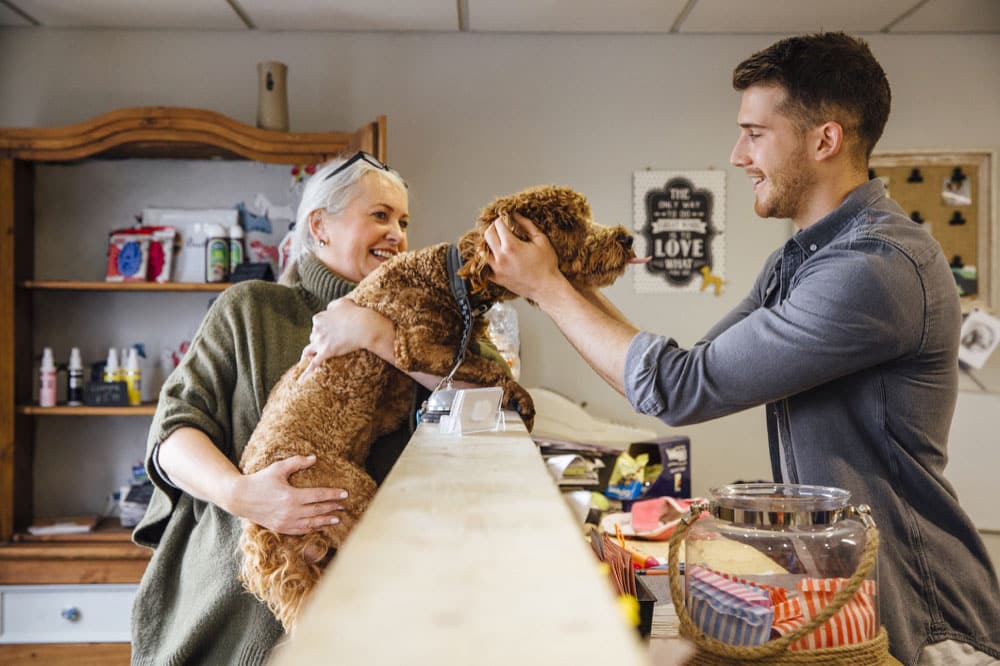
There are many reasons for a person to open a pet store, but it is usually a way for animal lovers to turn their interest into a paid job.
Here are some reasons why opening a pet store may be a beneficial option for you:
Reason 1. Working with animals
Since most pet stores sell pets, opening a pet store can allow you to work with animals such as dogs, cats, turtles, and fish. Many people find a lot of joy in caring for animals.
Reason 2. Enjoy what you do
If you are passionate about providing quality care and attention to your pets, opening a pet store allows you to make money doing what you love.
You can also provide resources and advice so that others can better care for their pets.
Reason 3. Gain financial success
Pet stores are very popular and can be lucrative business opportunities. This means that opening and properly operating a pet store can be profitable.
Reason 4. Make others happy
Many pet store owners interact with pet owners daily and provide them with pet care support services.
In addition, owning a pet store can help you enhance people’s lives and make them happier by providing them with pets.
Starting a Pet Business Pros and Cons
As with any career, owning and operating a pet store has pros and cons. However, considering these, you can determine if this career choice is right for you.
Pros
Here are some of the advantages of owning a pet store:
1. Control over your work
As a pet store owner, you don’t have to report to anyone and can control business operations, company policies, advertising methods, and product selection.
2. Provide personalized service
You can provide specific, customized services to pet owners in your store.
Holding one-on-one training sessions or pet care classes can help you connect with your customers and make them feel more welcome in your store.
3. Build relationships
If you enjoy talking to and helping people, owning a pet store allows you to build personal relationships with people in your community.
Many customers prefer to go to smaller, independently owned pet stores because they get more personalized treatment, and the staff often has a lot of animal expertise.
4. Practice creativity
When running your own business, you can practice creativity and innovation in designing your logo, interior space, and store merchandise.
Owning a store gives you the artistic freedom to choose colors, patterns, and styles that express your unique personality and vision.
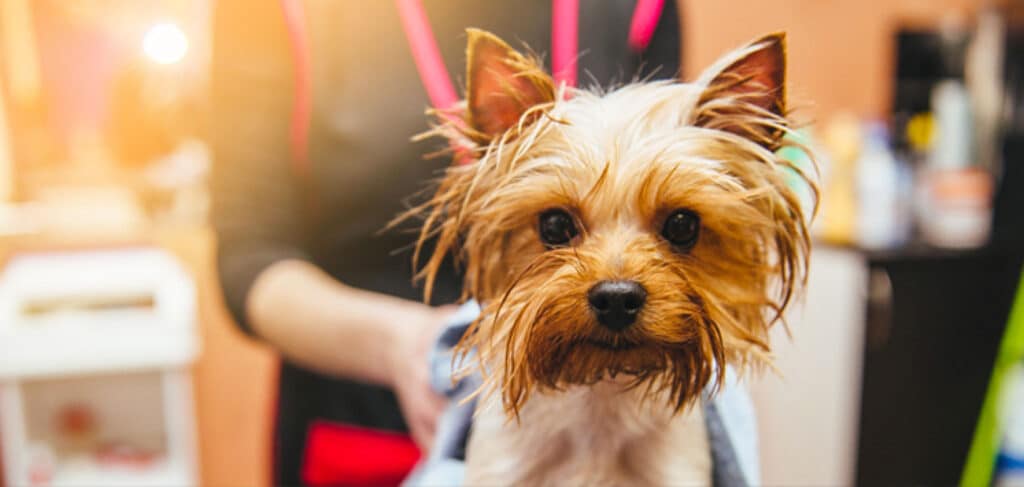
Cons
Here are some disadvantages to consider when thinking about opening a pet store:
1. Expensive
Opening a pet store can be a rather expensive venture. If you are like the average small business promoter, you may not have much start-up capital at your disposal.
However, you may want to consider obtaining small business financing to help cover the costs, and you can also apply for small business grant funding.
2. Time-consuming
Owning and operating a business is usually a major time commitment, and owners often spend a lot of time developing a strategy for success, especially in the first few years.
However, if you are passionate about pet care and want to help pet owners, the effort will be worth it to you.
3. Competition
Small pet stores may face a lot of competition from more established businesses.
However, you can overcome this challenge by positioning your business in a specific niche, providing excellent customer service, and establishing yourself as an expert in certain aspects of pet care.
4. Limited marketing capabilities
Sometimes small businesses do not have the funds to set up an entire marketing department and have limited advertising capabilities.
Small pet store owners can find low-cost creative ways to market their business, such as writing online blog posts, building their social media presence, hiring influencers, offering memberships, and sharing their business cards.
Pet Businesses Types

Pet stores often offer a combination of products and pet services but avoid becoming a “one-size-fits-all” pet store.
The following are types of pet stores:
Type 1. Dog walking
Dog walkers take their dogs out for one or more daily gendarmerie sessions, either individually or in small groups. Walking dogs alone can be a thriving business in some U.S. cities, such as New York.
In practice, however, it is much more common for dog walkers to provide additional services, including playing with and feeding pets, bringing in newspapers and mail, and turning on and off lights.
As recognized professions, pet sitting and dog walking are still in their infancy. While statistics show that only 3% of American households use dog walkers, that equates to nearly 50 or 60 million pets.

This could be a great business if you are in the right city or neighborhood and market yourself properly.
Obviously, in large metropolitan areas like New York and San Francisco, it’s easier to succeed because of the proximity of apartments and the busy schedules of city residents. They also tend to be high-income areas, so you can charge a little more.
Your business will be popular with more services you offer in addition to dog walking (cleaning, feeding, mail and newspaper delivery, etc.).
Type 2. Pet apparel
Pet clothing has grown in popularity over the past few years, so much so that Drip offers a large selection of shirts, clothing, and accessories designed for dogs and cats.
As with pet products, dropshipping offers entrepreneurs the freedom and time to pursue new skills or focus on marketing their products. The nature of DDT makes this a low-risk business venture.
Positioning is also particularly important when it comes to selling dog clothing. People are very selective about their fashion choices, and this stubbornness is reflected in their dogs.
Many avenues of fashion related to dogs are untapped, so there is plenty of room for creativity and unique branding.
Type 3. Pet sitting

The pet sitting services can be as broad or narrow as you want them to be.
For example, you can offer to look after your clients’ pets in your own home or theirs. In addition, you can offer to sit strictly during the day, on weekdays or weekends.
On the other hand, if you want to make this your full-time job, you can offer pet sitting 7 days a week, at any time of the day, and overnight.
As a rule of thumb, the more options you can offer pet owners, the better your chances of getting booked.
However, if this is something you’d rather do part-time or pair with another pet business, the flexibility is also there to fit the sitting service within your preferred schedule.
Type 4. Dog training
Part teaching, part psychology, the field of dog training requires excellent interpersonal skills and a love of canines. Dog trainers will tell you that you’re not just training dogs. You’re training the people who live with them.
Therefore, you must be able to talk to them affectionately, be patient with them, reinforce their behavior – and then do the same with their furry friends.
While a background in psychology may help, a genuine love for people and pets and a desire to help them goes a long way toward ensuring success in this career.
While there are no statistics on the number of dog trainers in the country because the profession is not licensed, the Pet Dog Trainers Association has about 5,000 members.
With an estimated 74 million dogs in the United States, there is plenty of room for good trainers to enter the field.
Type 5. Pet grooming
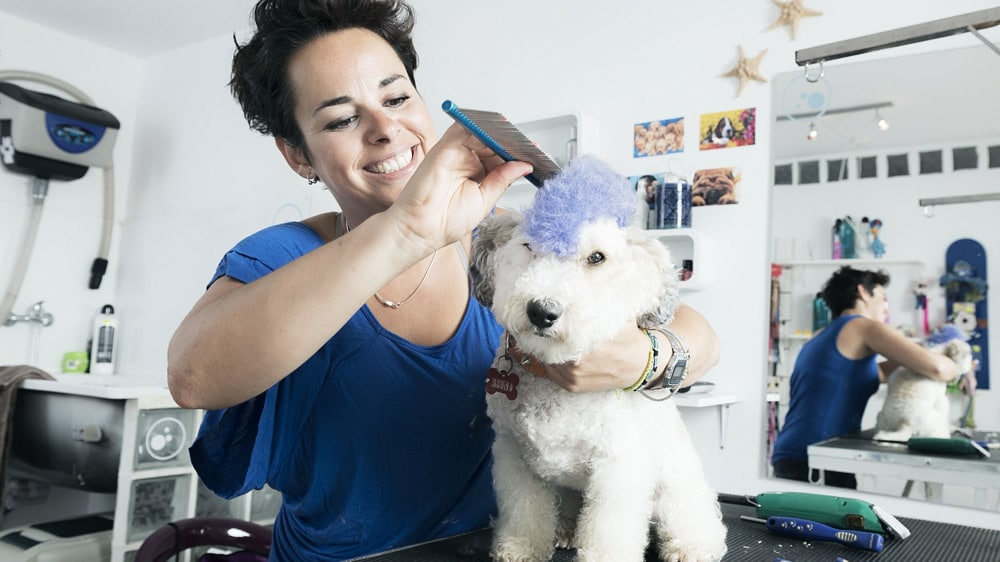
Also, pet grooming and professional photography are booming in the upscale category in 2010.
You will need to be able to bathe, cut, and clean pets, but you will also be asked to detect skin abnormalities or medical problems for further examination by a veterinarian.
Cat and dog grooming can be a great addition to your list of services for pet owners. Like walking and sitting, the grooming business thrives on customer relationships and trust.
Since pet owners in U.S. households pay more than $8 billion a year for services (including grooming), there is no shortage of business opportunities, better offer a niche.
Each of these can provide specialized services:
- Can you offer mobile grooming services?
- Can you groom anxious dogs or rescued dogs?
- Can you cater to the needs of large pets?
Type 6. Pet supplies
Pet owners need basic accessories such as food bowls, toys, litter boxes, and leashes.
Basic products like these may be widely available, but don’t let it fool you into missing out on the great opportunities here.
You may think that selling “essentials” will make it harder for you to compete with large, established brands, but that’s not necessarily true.
Too much choice can trigger “choice paralysis,” which is a huge advantage for smaller retailers.
If you hit a niche or focus on a specific product type, you can build a brand around it and become the go-to place for customers.
Type 7. Pet food
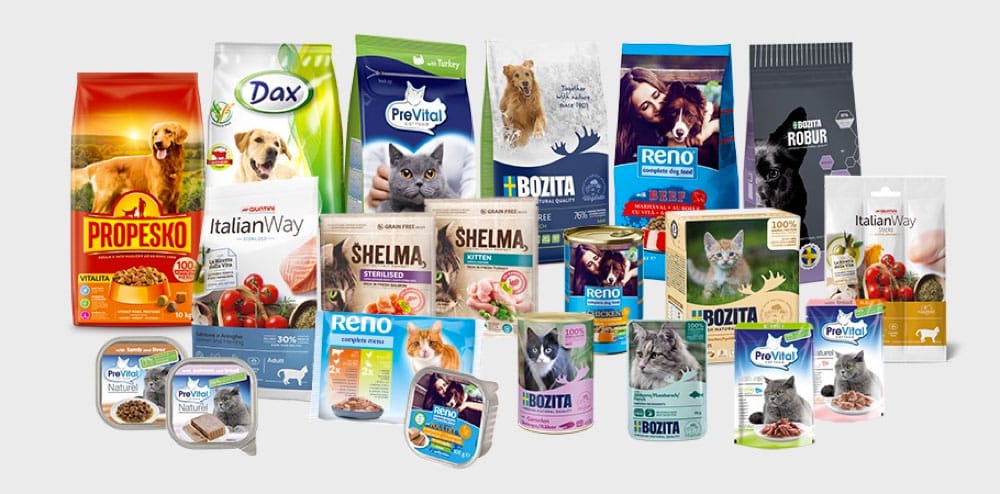
Pet owners spend more money on animal food than other expenses, estimated at $18.28 billion in 2010.
One of the biggest trends in this area is green, organically produced food and nutrition, rather than conventional, low-cost food.
As a result, opening a pet store that focuses on organic or all-natural foods or even a specialty bakery that focuses solely on dog food can be a success.
Depending on whether you decide to produce your own products or work with an existing label, it’s easy.
The American Pet Products Association can be a great resource for different distributors.
As an entrepreneur, almost any private label with an informed nutritionist will take a closer look at customizing a product program for your store.
“All the research and statistics show that informed consumers are still looking for specialty food stores,” says Reichner.
So, no matter what type of food you want to focus on, maintain that focus and become an expert. Smart pet owners will appreciate it and become repeat customers, which is the key to profitability.
Type 8. Handmade toys
Some people have a natural knack for DIY projects and craft work. If you fall into this category, then maybe the perfect pet business idea is making toys by hand for a living!
This particular way of working also provides you with ample opportunities.
This particular avenue of work also offers ample room for creativity, as the toys you create can be any size, shape, color, or theme you want.
Not to mention, if you create toys for different breeds of pets (i.e. dogs, cats, rabbits, ferrets, hamsters, mice, etc.), you can cater to a larger customer base.
In addition, you can even take your business a step further by making handmade toys for exotic pets.
Many people with hind-belly pigs, sugar gliders, etc. may find it more difficult to purchase toys for their unique pets.
With a more limited selection, your business may be exactly what they’ve been looking for.
How to Start a Pet Business?

Starting your own pet care business can be daunting, but it can also be very rewarding.
Follow these steps, and you’ll be on your way to a new career path:
Step 1. Market research for your pet business
The key is to determine which market you want to enter and then find out what businesses are already in that market (i.e., what customers are buying for and are likely to buy from you).
Step 2. Find a location
Whether you plan to board, groom or train animals, you’ll need to find a space that fits your needs. Visit similar businesses to get an idea of what your space needs are.
Then, once you find a space you think is feasible, check with City Hall for zoning regulations and any related permits or use restrictions.
Step 3. Obtain a lease
The state of the national economy and where you want to open your pet store will affect how easy it is for you to get a lease.
In a sluggish economy, purchasing your space may even be advantageous. You may also want to consider purchasing an existing store.
If the economy rises and rents are high, you may have to get creative with location and square footage. Also, before you decide on a location, remember to check the zoning laws in your area.
Step 4. Establish your brand
The next step in building your pet business is to establish your brand.
Creating a brand helps your customers (and potential customers) remember you better and build relationships, but it also helps with other aspects of your marketing strategy.
Your brand influences everything from how you communicate with people to your overall aesthetic. In the pet business, you need to stand out in your own way among the people you want to target.
Finding ways to stand out in the pet industry may sound difficult, but you can break it down into three main areas of personalizing your brand.
1. Unique and interesting products
Who needs another squeaky, red, rubber chew toy shaped like a bone? One of the main ways your brand can stand out is by offering something unique – a differentiating factor.
What if that same chew toy had brushes that helped brush your teeth? You could even play up the fun, cute factor, such as a formal costume for snakes. Make your product unique.
2. Brand story
Whether your business is based on a product or a service, you need a brand story to help your customers understand your “why”.
This is the foundation for your business and should drive your potential customers to take action.
Take Open Farm, for example, whose founder had been searching for healthy, ethical farm food for her dog but couldn’t find any. As a result, she and her family established their own business.
3. Visual identity
When we think of “branding”, you probably think of your visual identity. The visual aspects of your brand will include your logo, website design, social media covers, and packaging.
You’ll want to pay close attention to your visuals and how they should communicate your brand to your target audience.
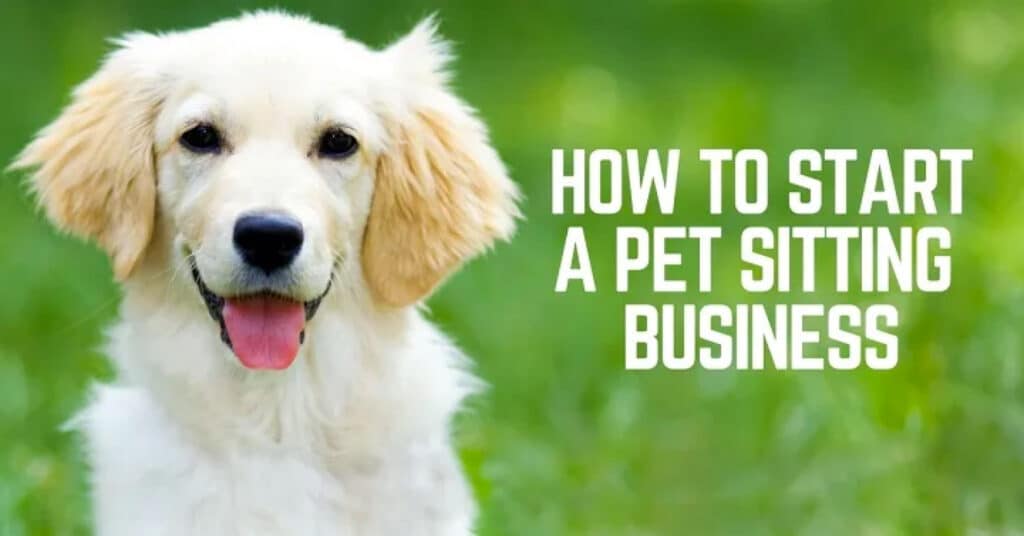
Step 5. Create a business plan
Create a business plan that includes guidance on your business goals and the steps you plan to take to achieve them.
Many online programs make it easy to create your own business plan, which you can present to third parties such as investors, banks, financiers, or auditors to obtain funding or showcase your financial history.
An important part of your business plan is your pricing structure, which represents how much you charge for your business’s products and services.
Research your competitors’ prices as a reference point for your pricing decisions.
Step 6. Meet legal requirements
To start a business, you must meet several legal requirements, including incorporating your business as a legal entity and registering it with the tax authorities.
Consider hiring an accountant to help you with the financial aspects of your business, including keeping financial records, filing taxes, preparing budgets, and processing payroll.
You can also contact organizations that specialize in helping people start small businesses.
Obtaining licensing, certification, and insurance for your pet store is important, especially because you will be dealing with animals.
For example, pet store owners must be licensed under the Animal Welfare Act and the U.S. Department of Agriculture’s Animal and Plant Health Inspection Service.
You may also need insurance to protect your business assets.
Step 7. Purchase pet care insurance
This is one issue you want to make sure you don’t miss. Having insurance is crucial to your new business. If you don’t have insurance, you may have to pay for any accidents out of pocket.
An insurance policy can protect you from lawsuits if your pet causes damage or injury while under your supervision.
For example, a dog may jump up and break valuables belonging to the dog’s owner while you are caring for the pet. This could result in a claim.
Or you may be walking your dog, and one of the dogs gets loose from its leash, and the dog runs away. The dog owner may file a lawsuit.
If you accidentally cut your pet’s nails too short while clipping them, its owner could take legal action.
There are many more possible claims, so the most important thing is to ensure you understand the potential for injury and ensure your business is insured.
Pet care insurance provides coverage for groomers, sitters, trainers, dog walkers, and even pooper scoopers. It starts at just $139 per year and can save you legal trouble.
General liability insurance has a limit of $1 million per incident. You can purchase a policy in less than ten minutes, and if you have any questions, you can chat with a pet care insurance agent today.
Not only should you purchase insurance for your pet care business, but you should also consider commercial auto insurance.
If you are transporting pets or washing them in your vehicle, you need to ensure you have commercial auto insurance.
Step 8. Create a signed contract for your client

The contract details the service agreement’s terms that describe the relationship between the client and you, the service provider.
The contract outlines your services, pricing, cancellation policies, payment options, damages, veterinary situations, etc.
Make sure you have a signature before working with a new client. If something happens next, you’ll be grateful that you have a signed contract to refer to.
Step 9. Promote (set up an online store)
Now that your pet products are ready to go, where should you sell them?
A good place to start is with your own online store. Creating an online store sounds difficult compared to listing your products on a marketplace like Amazon.
However, you can create your own website with a personalized domain name. Simply search for the domain name you want, and you can buy it online if it is available.
Having a social media presence makes a lot of sense today. You can do a lot of networking and marketing on the social platforms of your choice.
You might even consider posting flyers around town and carrying business cards wherever you go. If you drive a company vehicle, you can also put stickers on your vehicle to increase advertising.
Step 10. Set up a payment system and hire employees
Choose what types of payments you will accept and what kind of receipts you will provide. Purchase cash registers, receipt paper, and other items your payment system needs.
Business owners often set up separate bank accounts and lines of credit for their businesses to keep their financial records organized and easily accessible. It’s important to keep pricing and billing clear for customers and vendors.
While you may run your business independently initially, you may want to hire employees to help.
Plan your hiring process thoroughly to find professional, experienced, and skilled candidates. Consult with a legal professional to ensure you comply with the legal requirements to become an employer.
Step 11. Market your pet business
Once you have established your product and brand and have a way to sell to your customers, you need to work on marketing if you want your business to grow.
A marketing strategy is important for a successful business because it allows the owner to spread awareness of their products and services and attract paying customers.
You can design ads, create a website, build social media platforms, offer email newsletters, and partner with other businesses to market your brand.
You can also get involved in community building by providing charitable donations, sponsoring events, and developing community projects.
Make sure your marketing message is simple, unique, and consistent so that customers can easily identify and understand it.
Pet Business Product List
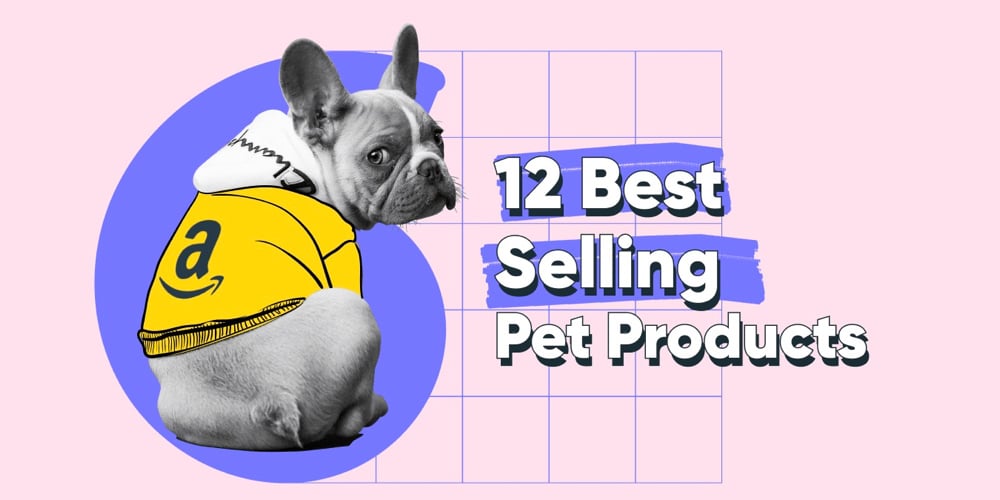
You can sell everyday items in high demand or introduce innovative products that create demand.
Here is a list of some pet supply businesses to get you started:
1. Sell basic pet supplies
- Basic pet supplies include:
- Food bowls, leashes
- Houses, cages, beds, litter boxes
- Accessories – collars, combs, bowls, etc.
- Pet toys
- Birdhouses, bird feeders
- Fish bowls, fish tanks
- Animal feed (dry and frozen)
- Everything for walks and trips
Among other things, animal feeds are more profitable because they have a steady demand. Selling pet food requires a lot of work, from finding a good recipe to manufacturing it.
2. Selling homemade pet food, and pet treats
The pet food market is growing. Pet owners like to provide the best kind of food for their pets. Bringing innovative foods that are nutritious and natural will appeal to them.
Provide healthier options for pet owners. You can customize the treats to suit their needs.
The downside is that you need to invest a lot of effort in making pet treats, testing them, and proving their quality.
3. Sell pet clothing online
Pet clothing is an upcoming trend. It’s a niche you can enter without much competition. There are many advantages to selling cute, handmade pet clothing.
You don’t need to worry about expiration dates like when selling pet food. It’s not as bulky, so your storage space can be minimal. There is also tremendous room for innovation and creativity.
4. Sell innovative pet products
You can create a new product in the marketplace based on the needs of pet lovers and market it accordingly.
It can be anything from creative pet accessories to health care products and luxury pet products.
For example:
- GPS trackers for dogs
- Dog car seats for home and travel
- Pet bowls to keep food in.
- Clean pet baths
5. Cater to pets and pet lovers at the same time
Another idea is to sell products for pets and humans at the same time. Curious Cat Company is an example of a company that sells products for both cats and humans.
How to Start a Pet Business FAQ
How much does it cost to start a pet business?
The benefit of starting a pet business is the low cost. The common costs of a pet business are creating the product, operating costs, online store costs, and shipping.
How can I start my own pet business?
The first thing you need to do when considering starting a pet or animal business is to research different types of pet business ideas to create a profitable pet business niche.
Is the pet industry growing?
According to APPA, the pet industry is growing significantly. In 2022, pet spending in the United States will be $103.6 billion. In 2022, this figure would be estimated to increase to $109.6 billion.
How to Start a Pet Business Conclusion
While the pet industry offers excellent opportunities for business growth, it is also quite saturated and competitive.
However, if you stock your products wisely, take good care of your animals, and serve your customers with passion and expertise, you will have great potential for success.
If you have other questions about starting a pet business, please leave the comments below.
I am Yan, the founder of Yansourcing, the best sourcing agent in China, who can quickly and safely help you buy and import from China. If you have any questions about importing from China, don’t hesitate to contact us.
